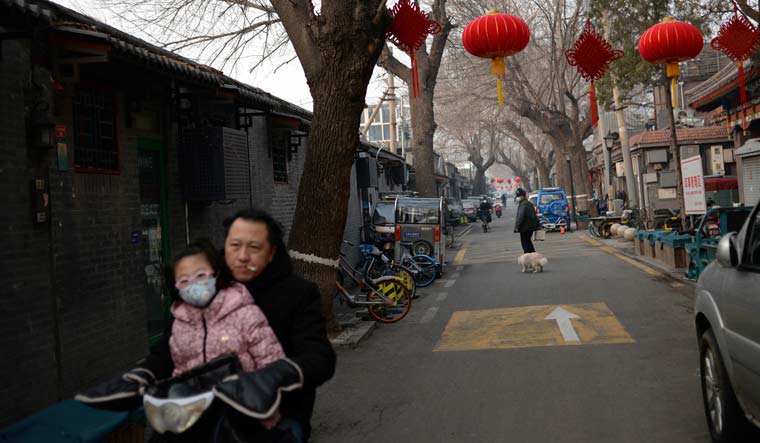It is easier to shake a mountain than China, Chinese Ambassador Sun Weidong said on Tuesday, dispelling concerns over the impact of coronavirus outbreak on the country's economy and its possible ripple effects across the globe.
In a press conference, Sun said China has taken the most comprehensive and rigorous prevention and control measures to win the battle against coronavirus at the earliest, asserting that the country has sufficient resources and policy tools to cope with economic fluctuations.
At the same time, he said that virus is a "borderless and a common threat to everyone in the world" and joint efforts are required to combat it.
The envoy appreciated India for extending solidarity and expressing readiness to assist China to deal with the epidemic, but stressed that there should not be any restrictions on trade and movement of people between the two neighbours.
Sun said there is no case of infection as of today among the remaining Indians in Hubei province, the epicentre of the epidemic, and authorities are taking "good care" of them.
China has been reeling under coronavirus outbreak triggering global health concerns as well as apprehensions about negative impact of the epidemic on the country's economy, which has the potential to impact global trade.
China's National Health Commission on Tuesday said the death toll due to the outbreak climbed to 1,868 on Monday while the total number of confirmed cases jumped to 72,436.
"China's economy is stable and strong like a mountain. The fierce wind could blow down the trees but not the mountain. What I want to say is that it's easier to shake a mountain than China," Sun said.
He said China's confidence to deal with the epidemic came from the country's strong economy, adding the Chinese government has allocated more than 80 billion RMB for epidemic prevention and control.
Sun said banks and financial institutions have provided more than 537 billion RMB in credit to fight against the epidemic.
"The epidemic has brought certain impact on some industries such as transportation, tourism and catering as well as small and medium-sized enterprises. In the short term, the downward pressure on China's economy will increase, but the impact is still local, temporary and limited," Sun said.
He said China has the confidence to maintain long-term and stable development of its economy, notwithstanding the current situation.
"As President Xi Jinping points out, we have full confidence, capability and determination to prevail over the epidemic at an early date," he said.
"As the world's second largest economy, our economic strength is the strong material foundation for us to win this battle," the envoy said.
He said several measures taken by China to deal with the situation are well beyond what is required by the International Health Regulations and the recommendations of World Health Organisation.
Talking about measures taken by Beijing to stop the spread of the disease, Sun said China has made tremendous efforts for the global public health at "great costs and sacrifices".
As of February 17, the envoy said the number of confirmed cases has been declining for 14 consecutive days outside of Hubei province.
"The epidemic in Hubei is also being managed more effectively. There is a rapid increase in the cure rate, from 1.3 per cent to today's 8.2 per cent. Over 12,000 people have recovered and they have been discharged from hospitals. The fatality rate is 2.29 per cent nationwide and just 0.55 percent outside Hubei," he said.
About international support, he said over 160 countries and international organizations have expressed their sympathy and support to China through telegrams or letters.
Sun said nearly 20 regional organizations, including the BRICS and SCO, have spoken in support of China.
"As of February 14, 33 foreign governments and four international organizations have assisted China with medical supplies. Seventeen foreign governments and one international organization announced that they will offer medical supplies," he said.
"Facing this common challenge, we need to strengthen cooperation, enhance mutual understanding, show solidarity, and jointly overcome difficulties," Sun said.
The envoy said China and India have been keeping close communication on the epidemic.
"Recently, Prime Minister Modi sent a letter of condolence to President Xi Jinping, expressing his recognition of the tremendous effort made by the Chinese government to deal with the outbreak. The Indian side assures readiness to stand by China and provide the assistance that India can to face this challenge," he said.



